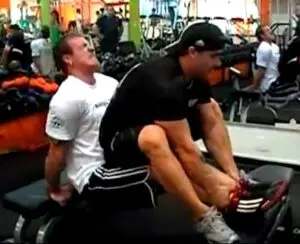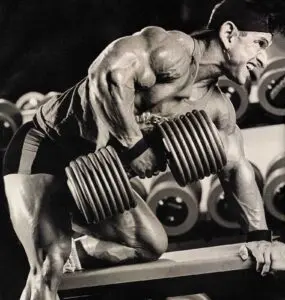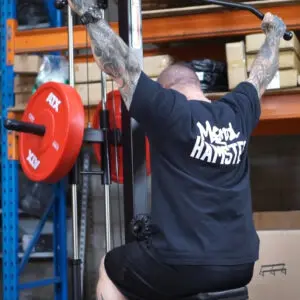 What age to start weight lifting?
What age to start weight lifting?
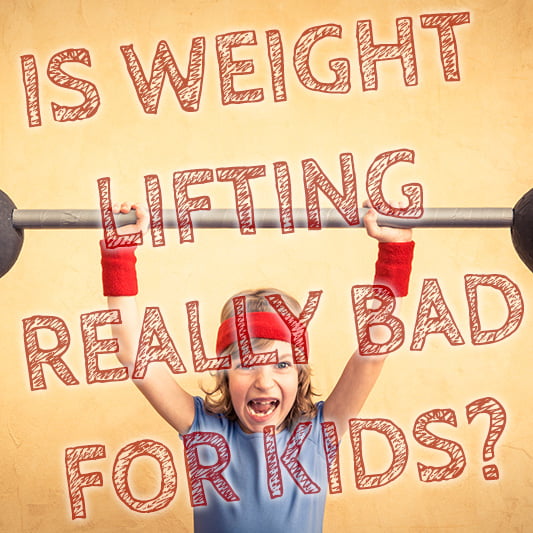
This is a question I hear from parents all the time.
Unfortunately, the term weight lifting is surrounded by a lot of “fake news”. What I mean by this, is that there are some common misconceptions about weight training that prevent kids from participating in a healthy, educational activity that’s heaps of fun.
These “Old wive’s tales” result in many parents treating weight lifting far differently than they would any other form of physical activity.
Of course parents are concerned for the welfare of their children, but the scrutiny that some apply to this activity far exceeds the norm. In reality though, a little common sense and the right amount of supervision means that children can enjoy and benefit from weight lifting, just like their parents.
Can weight lifting stunt a child’s growth?
One of the funniest things I’ve heard about children lifting weights is that it will stunt their growth. Let’s be honest, if this was the case, most elite athletes would be midgets. They start exercise regimes much earlier in life than most. In fact it’s the opposite that’s true, athletes are continuing to get taller, faster and stronger.
Sure, weight lifting probably could stunt a child’s growth; if you had your six-year-old child doing 1 x rep maxes on barbell squats. This is where you simply need to apply some common sense. Driving a car can be very dangerous if you drive at excessive speed, so naturally you wouldn’t do this. The same thing applies with weight training, don’t do stupid things!
Curiosity is natural, so gym equipment should be fun
As a father and someone who loves to workout, it’s only natural for my children to have some sort of curiosity and desire when they see their parents actively involved in training. So I have a pair of 1kg & 2kg rubber hex dumbbells which they can use to mimic mum or dad when they see us performing our own exercises.
What’s really important though is that they’re having fun. Just like I don’t correct their form when picking up a 2lt bottle of milk, I don’t patrol my kids like the “form police”, and I don’t crack the whip to make sure they are doing the lifts perfectly. Once again this is where common sense must be exercised. Some people think a dumbbell is like a hand grenade and if it not handled properly will wound you for life. While this might be true for a child using a 20kg dumbbell, think of all the things your child handles that are in the 2kg to 5kg range – bikes, scooters, chairs, toys etc.
As a matter of fact, it is one of the ills of modern day city living that we have completely lost touch with how humans live outside of cities or in less wealthy countries. Children at a very young age have to help with daily tasks which involve lifting far more weight than a 1kg or 2kg dumbbell. They are carrying water, feeding animals and moving firewood.
While I can’t remember exactly what age my children showed an interest in using the gym equipment at home, they were pretty young, probably around 4-5 years old. But like a lot of kids that age, they do it for about 5 minutes and get bored, moving on to something else. It is not like they are banging out five sessions a week at one hour a piece. But sometimes they get right into it and will keep going for 30 minutes. I just get them doing sit ups, push ups, bodyweight squats, lunges etc.
Ensuring teens workout safely?
For parents with teenagers who are a little more eager and most likely to make a serious commitment, there is no better person to ask the Mr Universe Lee Priest.
He started weight training at the age of twelve and won his first bodybuilding contest at the age of thirteen.
Some real common sense advice offered by Lee here, good form, lighter weights, higher reps, basic exercises.
But there is an important element that I would like to mention which is often overlooked. This element is you.
If you train regularly and plan to do any sort of weight lifting with your children, then it’s critical you adhere to the advice offered by Lee. Kid’s are a sponge, and you need to focus on you because they will do as they see and do as you do. There’s no use preaching good form if you are trying to re-live your glory days, lifting a weight that is far too heavy for you. This is where you must use absolute text book form and emphasise that a rep doesn’t count if you don’t execute it to perfection.
Kids are impressionable, and while this sort of discipline is important for avoiding injury, it’s also critical when you are not around to supervise. Teenagers, especially boys, let loose on a home gym with all that testosterone floating around can be a recipe for disaster. In fact most guys will very quickly throw form out the window and try to one up each other on the bench press. But letting your kids train with a group of mates is something you should encourage, as fitness is an excellent hobby to get into (especially for teenagers) as they’re approaching an age where they start to get exposed to many unsavoury influences such as drugs and alcohol.
So make it clear right from the start that poor form is laughable – nobody respects a half-repper, and text-book form is applauded even if the weight is a bit lighter. It’s pretty hard to instil this discipline if Mum or Dad is swinging like a pendulum while doing their bicep curls!
Can the gym equipment I choose make a difference?
Another way to add a level of safety on top of good form is the right choice of gym equipment. You need to get equipment with in-built safety mechanisms and you must hammer home the importance of using it. Those cheap and flimsy bench presses that you see on eBay or discount stores are an accident waiting to happen. Not only are there no spotters if they can’t complete a rep, the construction just isn’t up to scratch. When you add the user’s body weight, the weight load capacities are pretty low. Plus, the substandard materials used don’t stand up to repeat usage.
If you opt for a power cage or squat rack, always emphasise the importance of correctly using the spotter arms. When these are used properly you are son or daughter are perfectly safe alone or with a group of friends.
On the other hand, if your son or daughter are the forgetful types, one of the leverage multi gyms are perfect. With their fixed start and stop positions, they will never get trapped under a heavy weight.
Long-term benefits of weight lifting for children
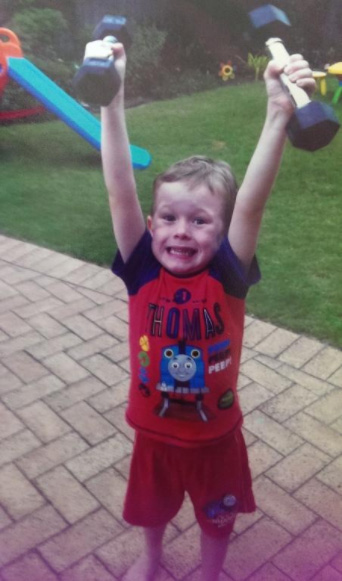
The bombardment of incredibly engaging content hasn’t been around too long so we don’t know the long-term consequences. But from my observations it promotes terrible posture, reduces the ability to focus on mundane tasks, reduces basic motor skills and social interactions – just to name a few. For me, a childhood should be a time to run around and burn off energy, not sit indoors playing video games or watching others play video games on YouTube (my kids can watch this rubbish for hours!).
So, if my son or daughters say they want to lift weights I would be only too happy for them to do this instead of staring for hours at an iPad.
Teenagers have the lure of technology as well, however it takes on a more sinister form. I dread the day my children are on Facebook as I hear the stories about bullying and obsession with popularity etc. Weight lifting promotes healthy eating and the importance of getting a good night’s sleep. If that means putting down the phone, iPad (or worst-case scenario – a bong or pipe) then training is truly our saviour.
The lesson I learnt from an early age in the weights room was that gains were very hard to come by and took a lot of sacrifice. This was a valuable life lesson that taught persistence and determination, and I reckon my kids could do with a good dose of that.


